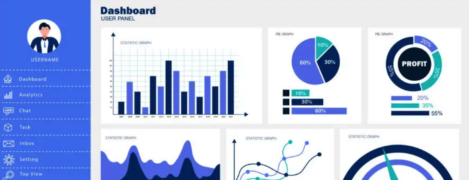What is CX, and Why Does It Matter for Your Business?

In today’s competitive landscape, customer experience (CX) has become a game-changer for businesses of all sizes. For small teams, where every customer interaction counts, delivering an outstanding CX isn’t just a “nice-to-have” — it’s essential for growth and survival.
This article will break down what CX means, why it matters for small teams, and how you can use it to build loyal customers and drive success.
What is Customer Experience (CX)?
Customer experience (CX) refers to the overall impression a customer has of your business throughout their journey — from the first interaction to post-purchase support. It’s the sum of all touchpoints, emotions, and interactions they experience when dealing with your brand.
Key Elements of CX:
- Ease of Interaction: How simple is it for customers to contact you, place an order, or get support?
- Emotional Connection: How does your brand make customers feel?
- Consistency: Are experiences seamless and predictable across channels?
Example: A small bakery that remembers customers’ favorite orders and offers online ordering for convenience creates a strong emotional connection and ease of interaction, enhancing CX.
Why CX Matters for Your Business
1. Increased Customer Loyalty
Exceptional CX turns one-time buyers into repeat customers. Research shows that 86% of customers are willing to pay more for better experiences, making CX a key driver of loyalty.
Example: A small tech startup offering rapid, personalized customer support can outperform larger competitors with slower response times, ensuring customers stay loyal.
2. Positive Word of Mouth
Happy customers are more likely to recommend your business to friends and family. In fact, 72% of customers share a positive experience with six or more people.
Example: A local fitness studio that sends personalized “thank you” messages or celebrates milestones (like your 50th class) delights customers, encouraging them to spread the word.
3. Competitive Advantage
For small teams with limited resources, CX can differentiate your brand from competitors. A consistent and memorable experience makes your business stand out.
Example: An independent coffee shop with friendly baristas who greet regulars by name can outshine a big chain offering a generic, impersonal service.
4. Improved Business Performance
Good CX directly impacts revenue. Studies show businesses with superior CX can grow revenues 5–10% faster than those with poor CX.
Example: A boutique e-commerce store that simplifies checkout and offers hassle-free returns can see higher conversion rates and fewer abandoned carts.
How Small Teams Can Deliver Great CX
While small teams may not have the resources of large corporations, they have an advantage: the ability to build genuine, personalized relationships with customers. Here’s how to make the most of it:
1. Focus on Personalization
Customers value experiences tailored to their preferences. Small teams can easily personalize emails, support responses, and recommendations.
Example: A marketing agency sending a personalized follow-up email after a project completion shows care and attention, strengthening the client relationship.
2. Streamline Communication
Make it easy for customers to reach you. Use tools like chatbots, shared inboxes, or social media to handle inquiries promptly.
Example: A small online retailer using a chatbot to answer FAQs ensures customers get answers instantly, even outside business hours.
3. Train Your Team to Be Customer-Centric
Empower your team to prioritize customer needs and solve problems creatively. Every team member, from sales to operations, should view CX as their responsibility.
Example: A small SaaS company where developers directly handle certain support tickets adds a personal touch and speeds up resolution times.
4. Leverage Technology
Adopt tools like customer relationship management (CRM) software to track customer interactions and preferences. Even small teams can benefit from automation to enhance CX.
Example: A subscription box service using CRM data to remind customers of renewal dates and offer discounts for early renewals increases satisfaction and retention.
Common CX Mistakes to Avoid
- Inconsistent Experiences: Delivering a great in-store experience but neglecting online customers creates frustration.
- Ignoring Feedback: Customers want to feel heard. Act on their suggestions to show you value their input.
- Overcomplicating Processes: Lengthy forms or unclear instructions lead to abandoned purchases and poor impressions.
The Future of CX for Small Teams
CX isn’t just a trend — it’s the foundation of sustainable business growth. As technology advances and customer expectations rise, small teams must stay agile, innovative, and customer-focused.
Investing in CX doesn’t require a big budget, just a commitment to understanding and meeting customer needs. Whether it’s responding faster, personalizing interactions, or simplifying processes, small steps can lead to significant results.
Takeaway
Customer experience is more than a buzzword — it’s your most powerful tool for building loyalty, driving word of mouth, and growing your business. For small teams, the ability to deliver personal, meaningful interactions is an advantage larger competitors often struggle to match.
By prioritizing CX, your team can create a lasting impression that keeps customers coming back, no matter how small your resources.
Ready to elevate your CX? Start small, focus on personalization, and listen to your customers. The rewards will follow.







